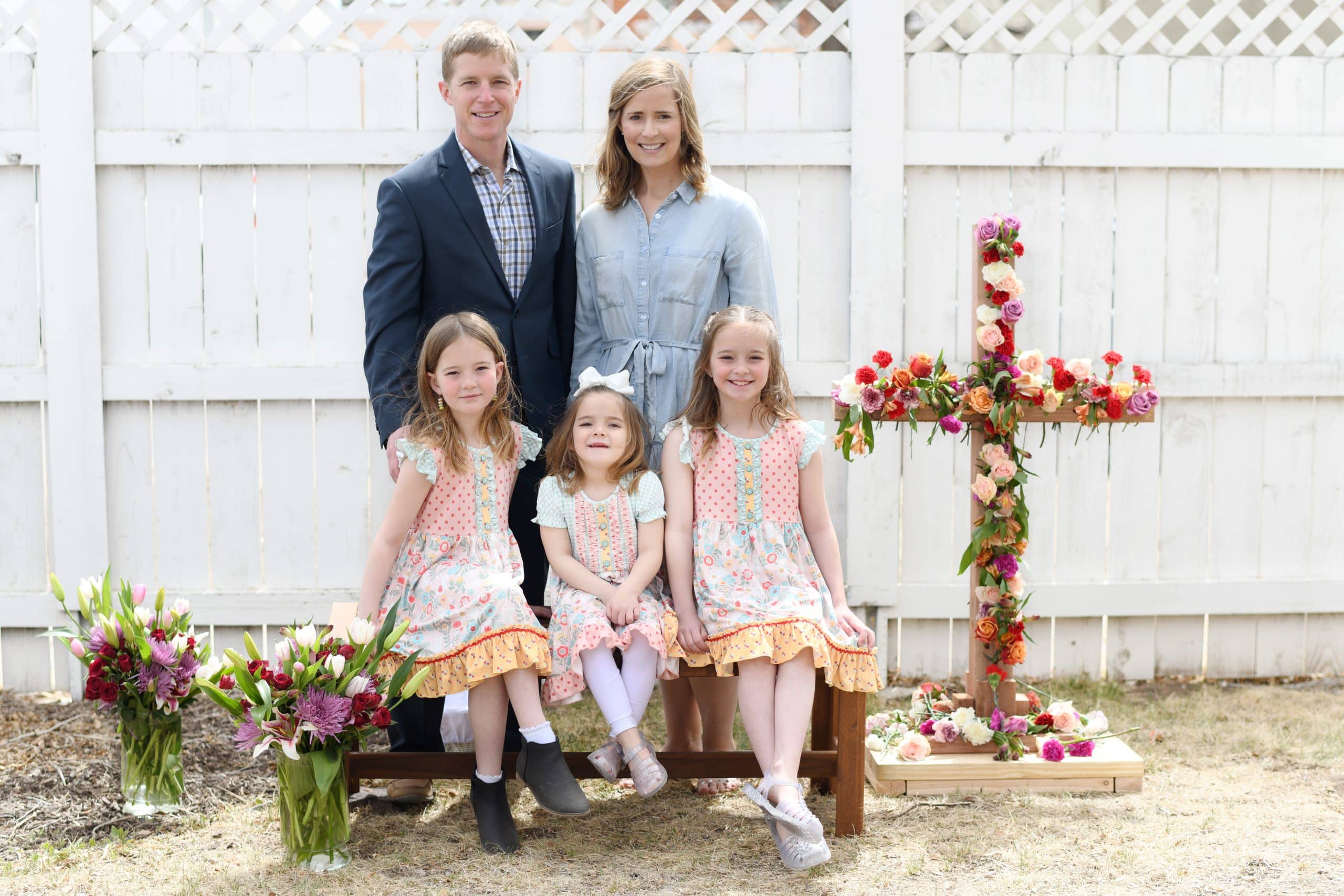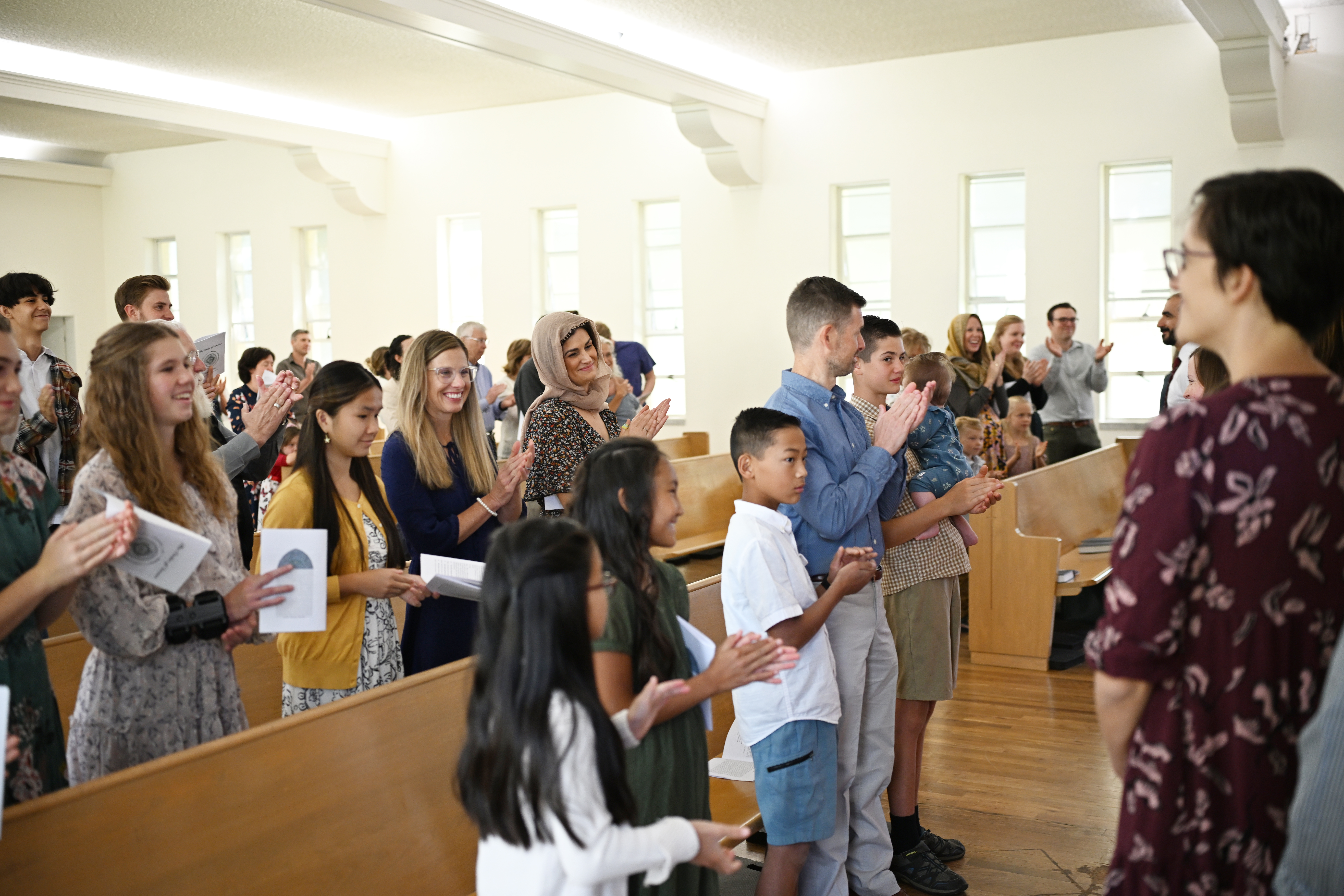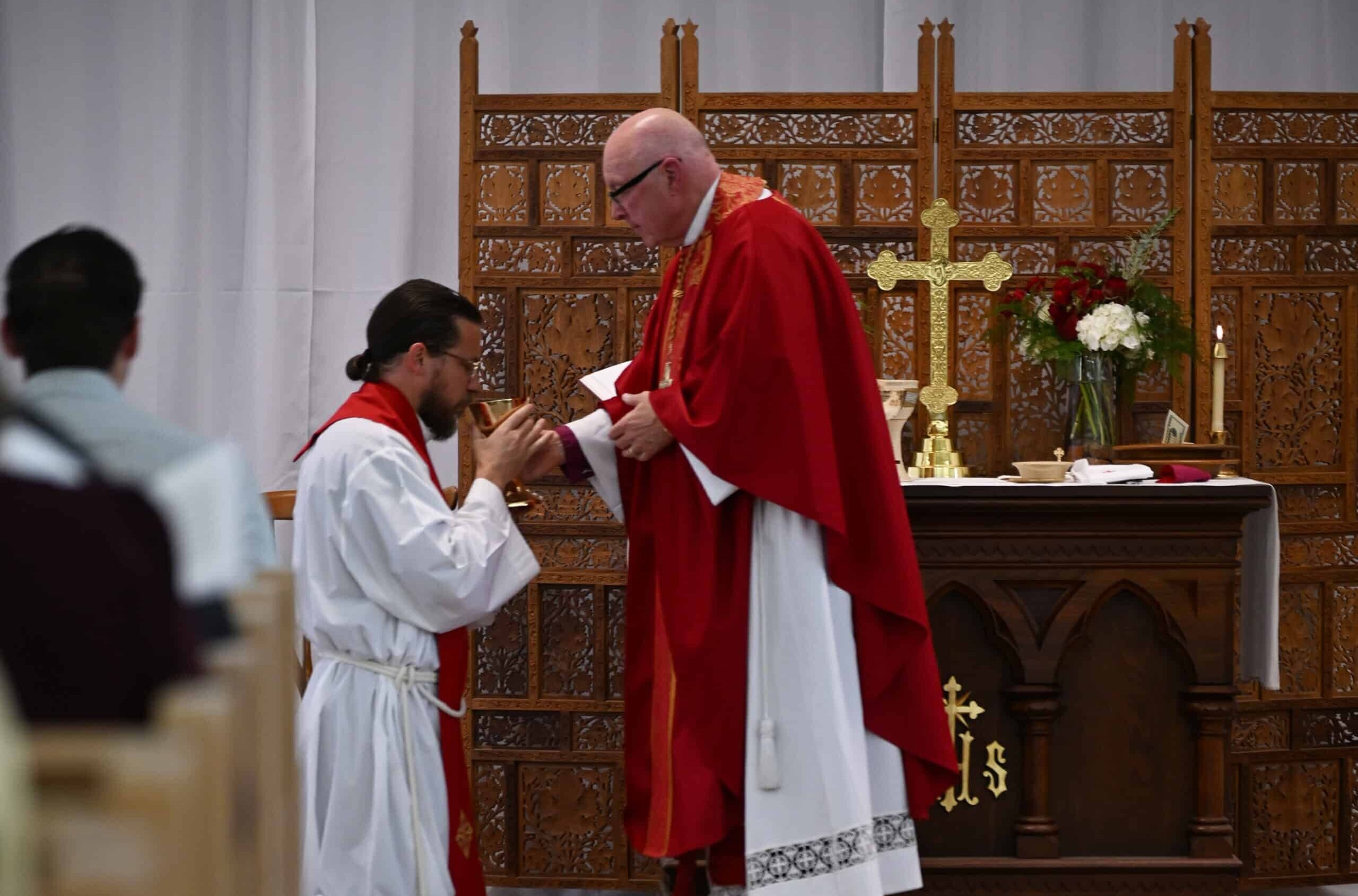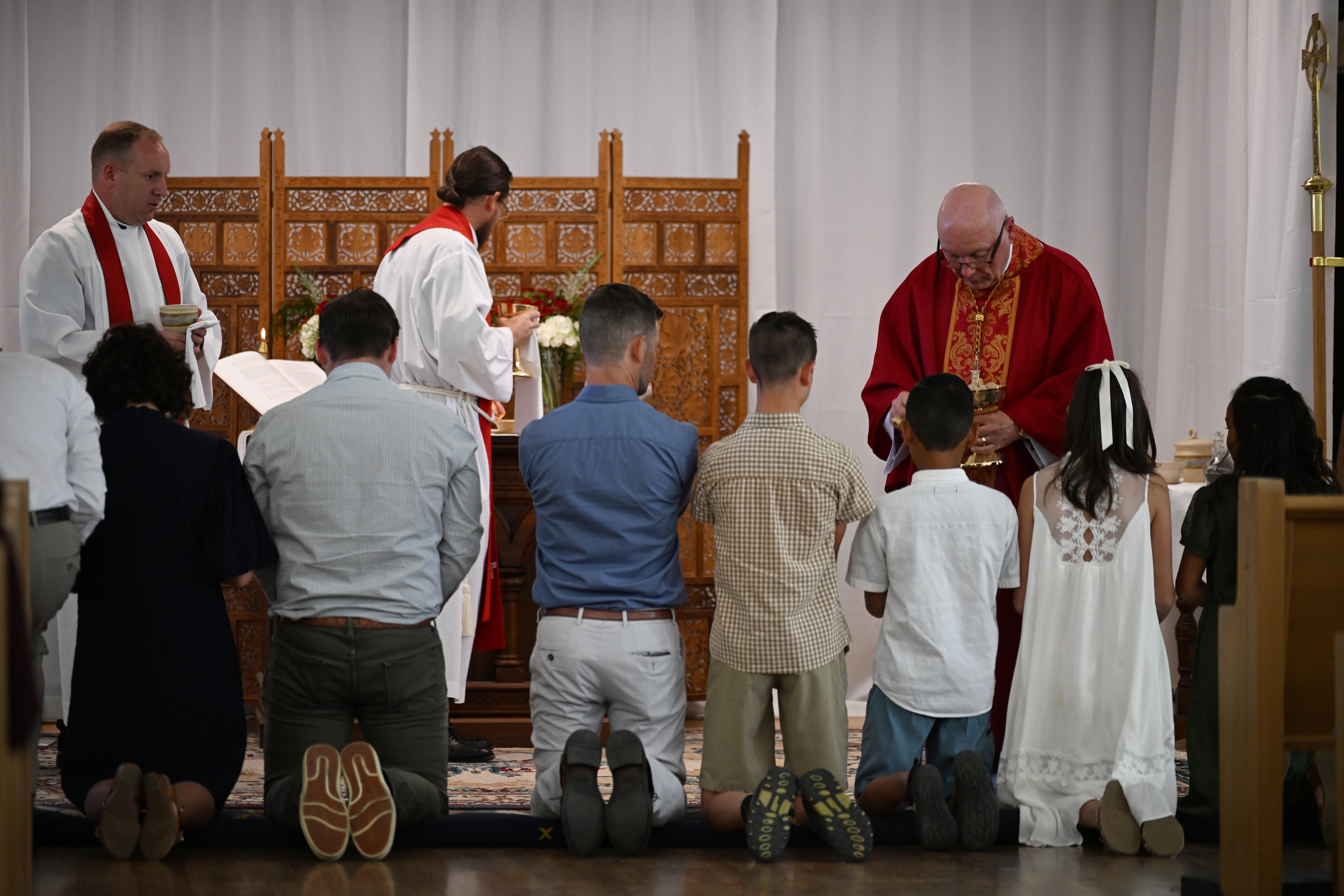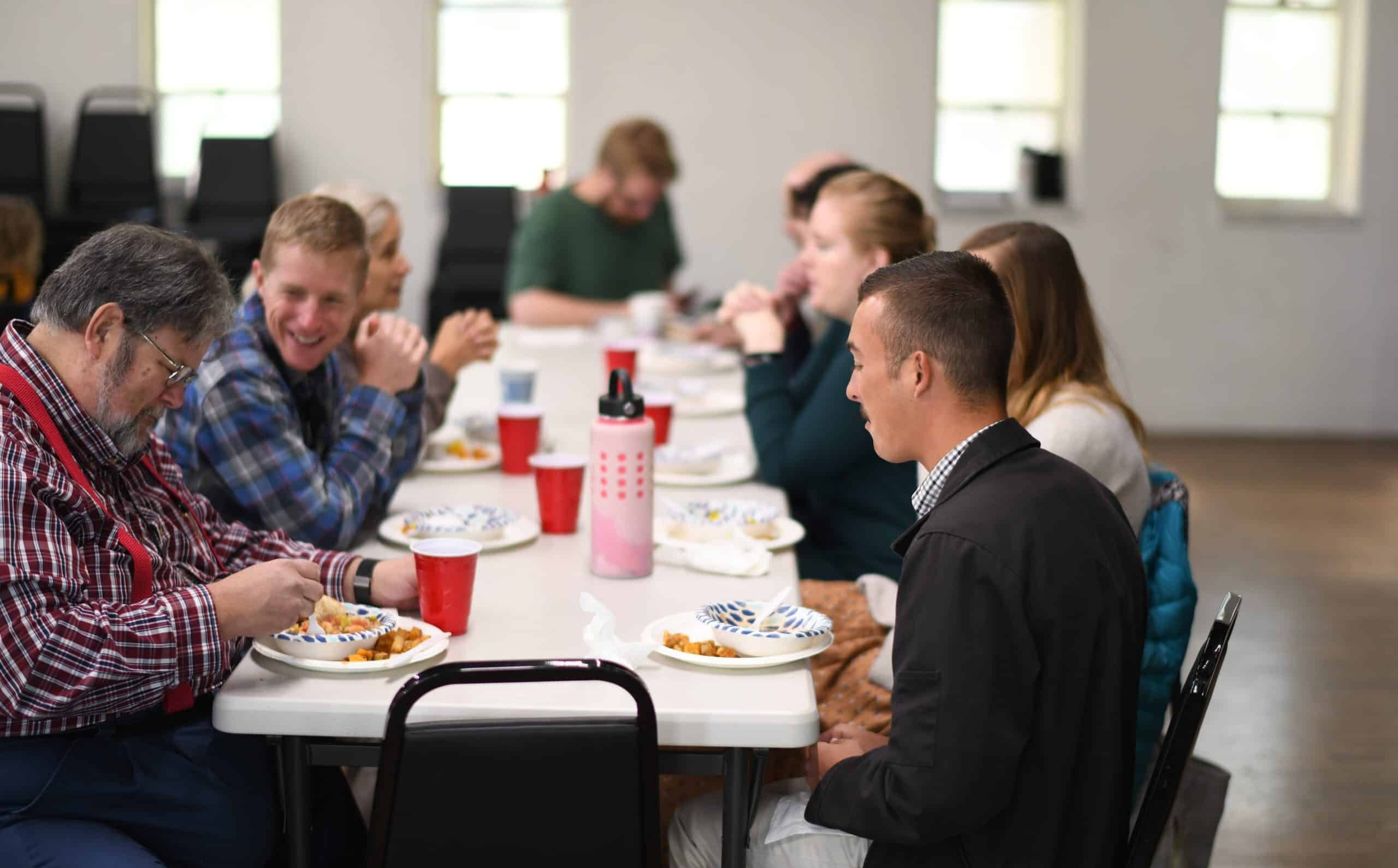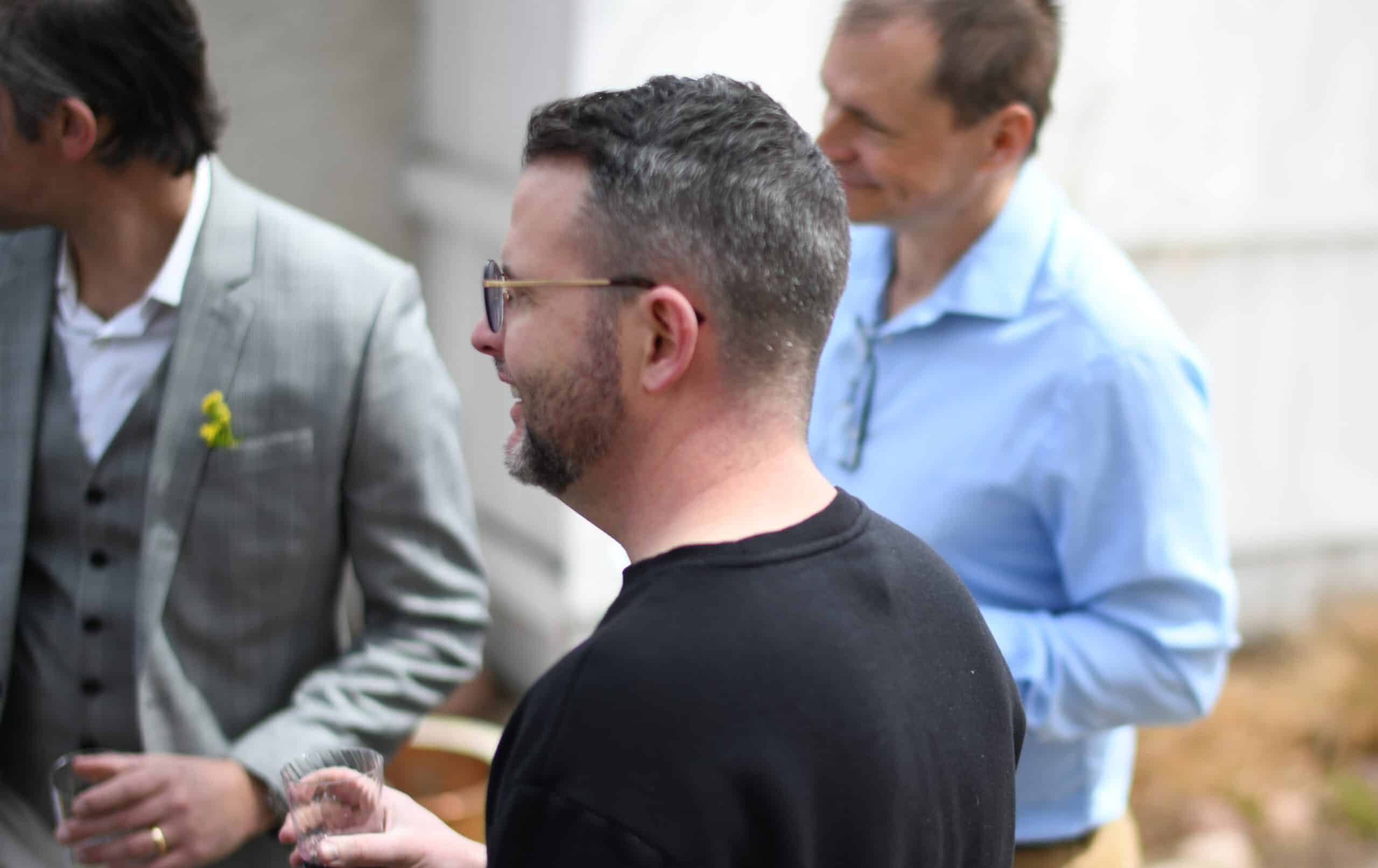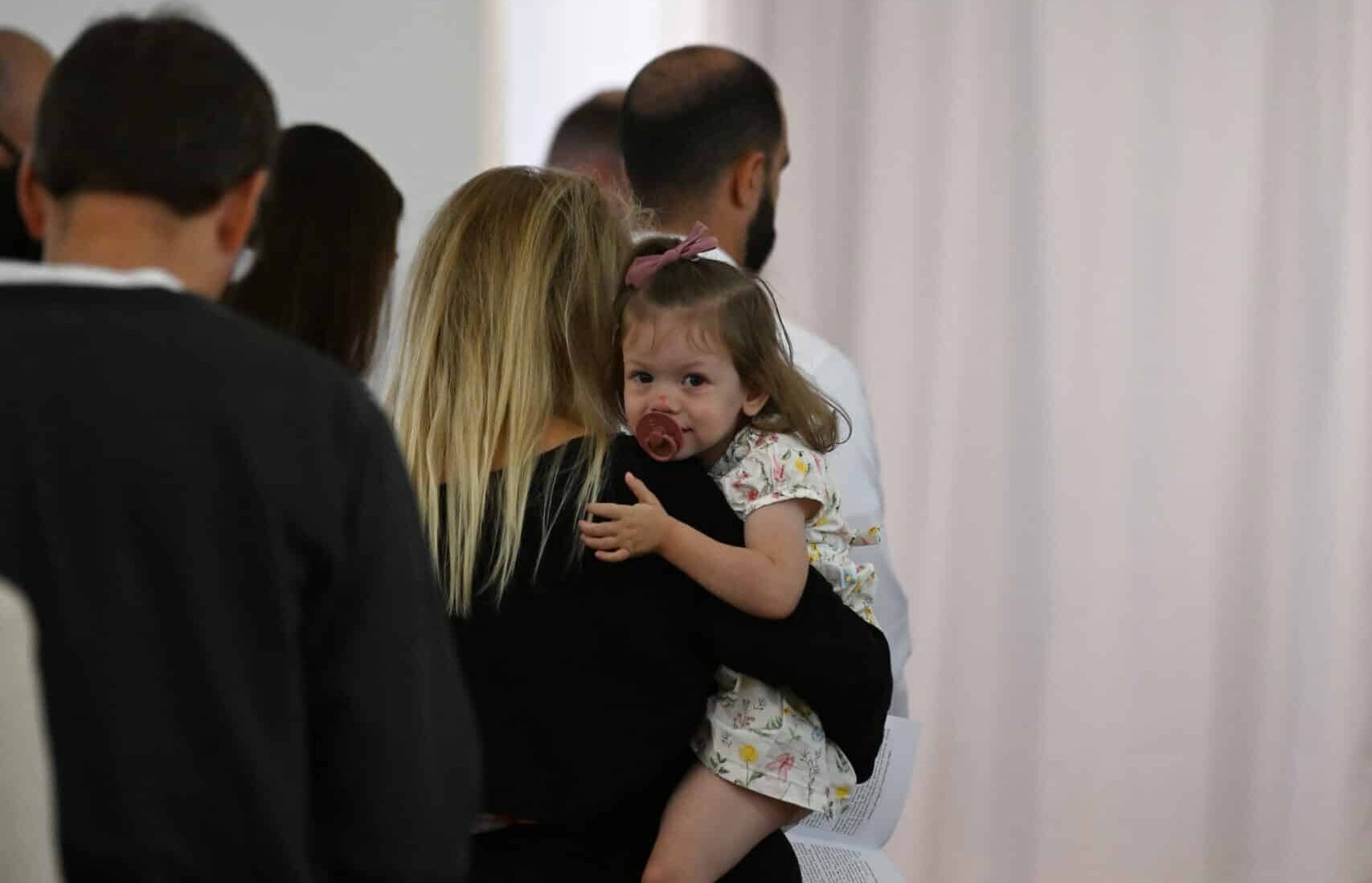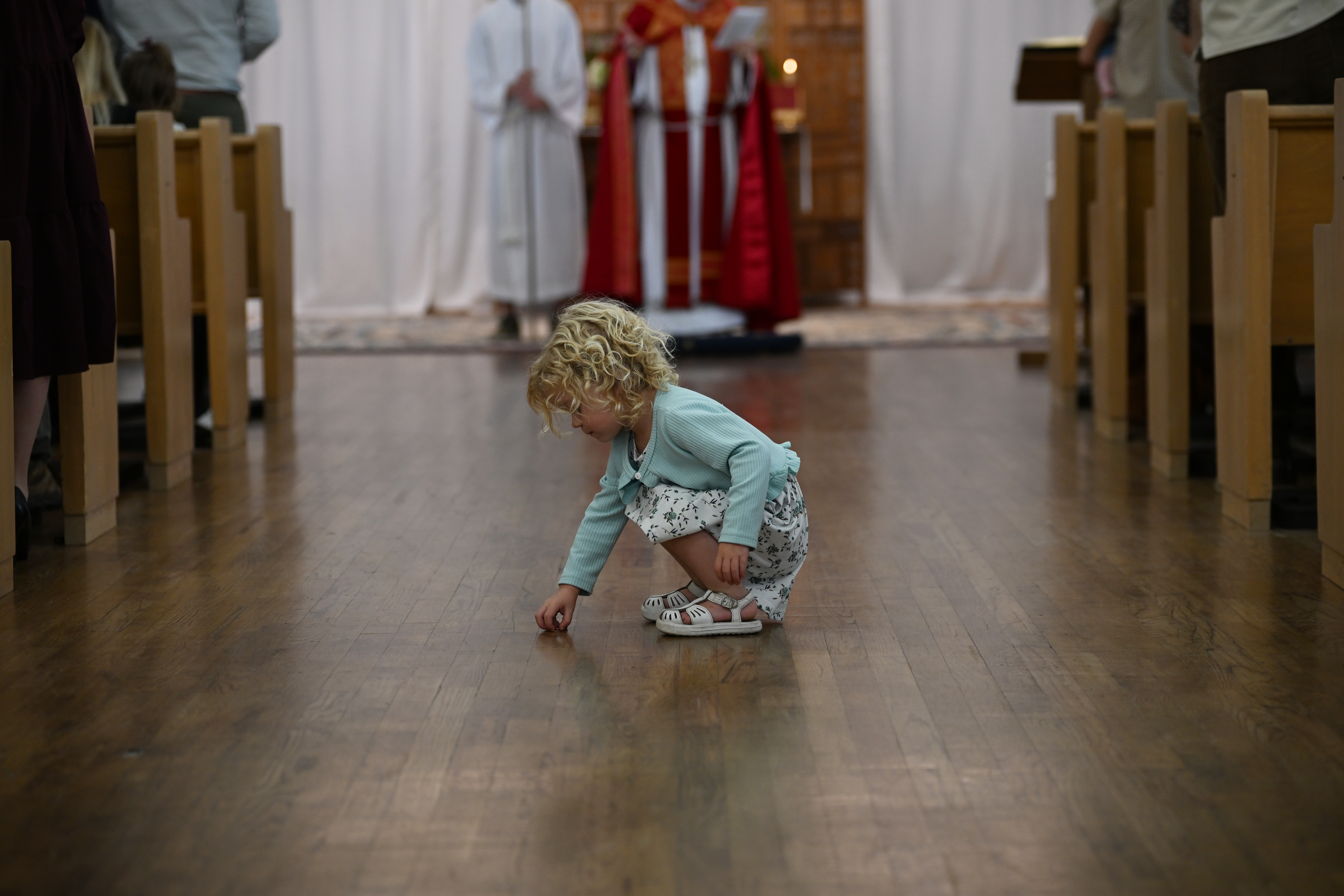Welcome to Holy Cross Anglican Church
In the words of our Bishop, the liturgy is a conversation between Christ and his bride the Church; and because it is the conversation of two lovers, it is full of music and poetry. We participate in this conversation by means of an ancient liturgy that has its roots in the earliest worship of the Church and in Holy Scripture. In fact, most of what we pray, sing, and say is taken directly from the Bible. The liturgy culminates in the contemplation and enjoyment of God through the sacrament of Holy Communion, also called the Eucharist and the Lord’s Supper.
We celebrate the liturgy of Holy Communion as found in the Book of Common Prayer, worshiping with the whole family of God: infants, children, and adults. Our service is about one hour long.
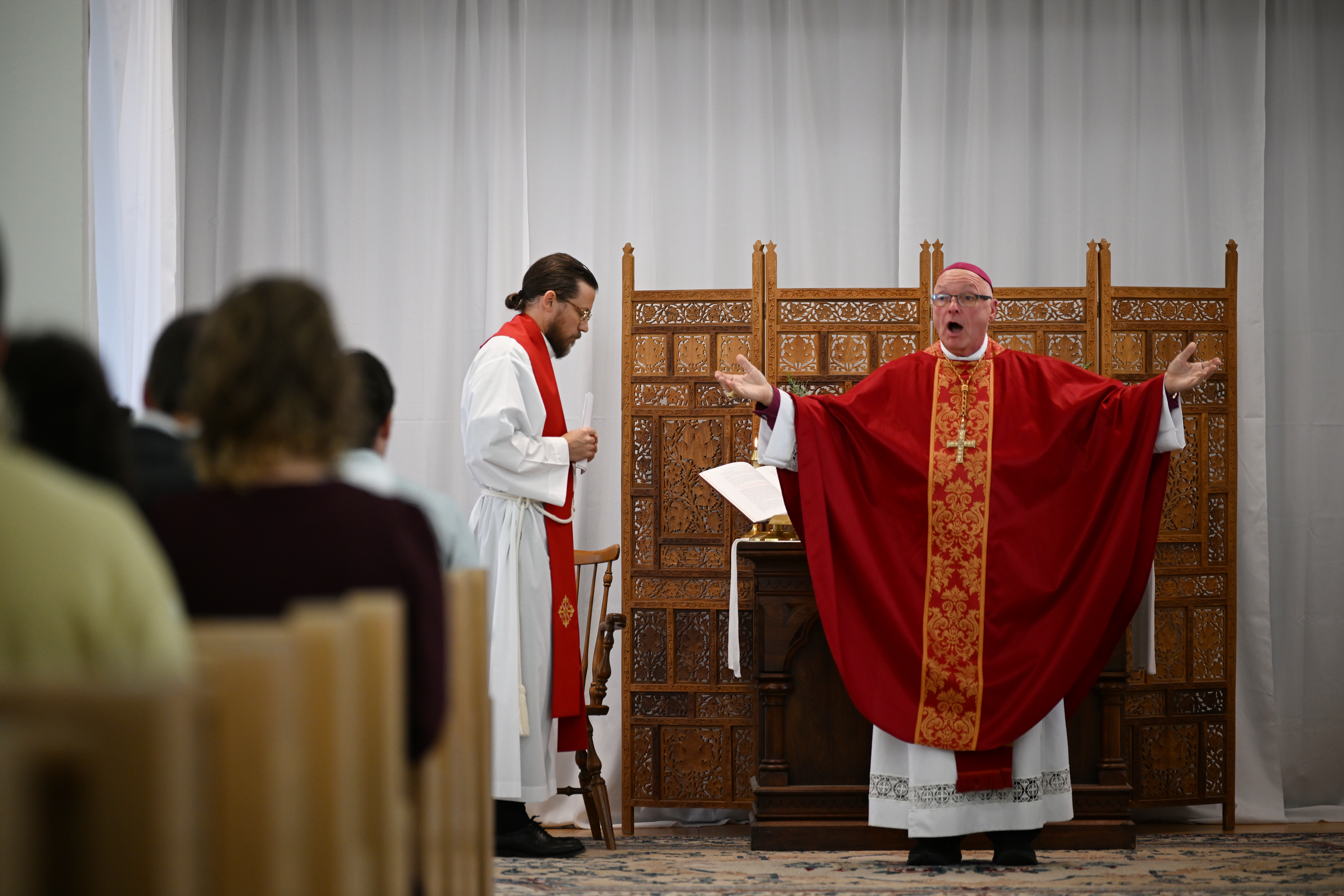
Here’s what you can expect on Sunday morning at Holy Cross Anglican Church
01.
Preparing Our Hearts for Worship
We start at 11AM with a few minutes of music for self-examination as we prepare to enter into God’s Holy presence.
02.
Entering into God’s Presence
The service begins with a processional hymn, at which time those involved in leading the service process in to bring a visual expression to the spiritual act of entering into God’s throne room.
03.
Prayer and Scripture Reading
We then pray together and read God’s Word.
04.
A homily or sermon (usually about 15 minutes long) follows the reading of Scripture.
05.
Liturgy of the Sacrament
After the homily, we enter into the liturgy of the sacrament. This begins with prayers led by the celebrant including a prayer of corporate confession and the absolution of sins.
06.
The Holy Eucharist
The service culminates with Holy Communion when we receive the sacrament of the Eucharist.
07.
Final Prayer of Thanksgiving
After receiving the sacrament, we offer a final prayer of thanksgiving and sing our final hymns before being sent back into the world to bring the gift of life, which we have freely received, and share it with the world through lives of cruciform hospitality.
08.
Fellowship
The first thing we do after the liturgy is share a meal with one another. Our meal is provided by members of Holy Cross and all visitors are invited to stay and eat with us.
09.
Growing in Faith Through Catechesis
After our Sunday gathering, we continue to learn and grow together through various fellowship opportunities during the week.
Sunday Morning Information
What to Wear
Because we are celebrating the Feast of the Resurrection every Sunday morning, those who are part of the service wear the traditional white celebration clothes of the church, called vestments. The clergy wear more vestments over their white ones, which match the color of the Church season and are meant to invoke a sense of festivity and Edenic fruitfulness.
There is no dress code for the congregation. Some people dress formally, some informally (refer to the pictures).
What We Do to Celebrate
We celebrate the Resection of Jesus Christ with a liturgy (service) called Holy Communion. This liturgy is rooted in the Scriptures, both the Old and New Testaments, and has been used by the Church since the first generation of Christians. There are two main parts to the service:
Part 1
We hear the Word of God through the reading of the Law, the Prophets, the Psalms, the Epistles, and the Gospels. We then mediate on the Word by means of the homily (sermon).
Part 2
We respond to the Word with corporate confession and prayer. We then commune with God through the sacrament of the Holy Eucharist.
Who's Invited
The celebration of Holy Communion is for everyone in the Church, just like a family dinner. For this reason, we do not offer childcare during the liturgy, we do, however, provide a nursery at the back of the nave (sanctuary), where children can play quietly during the service if needed.
All are welcome to join us for the liturgy, but the sacrament of Holy Communion is reserved for those who have been baptized. We welcome all baptized Christians who come to the altar, including children at the discretion of their parents. You will see many children in our church receiving the sacrament. If your child is not baptized, or if you do not want them to receive the sacrament, they are still welcome to come to the altar rail with their parents for a blessing. Adults who are not baptized or who do not want to receive the sacrament on a particular Sunday are encouraged to come to the altar to receive a blessing.
The Sacraments
The Anglican Church has a joyful and reverent understanding of the Sacraments of Holy Baptism and Holy Communion. We baptize all members of the Church, from infants to adults, and we offer the sacrament of Holy Communion to anyone who has been baptized with water in the name of the Holy Trinity. The sacrament of Holy Communion requires baptism and also participation in corporate confession during the service. If you are living in sin and do not intend to change your ways please do not partake in the sacrament. We would, however, love to offer you a blessing as a sign of our desire for fellowship. You can indicate your desire for a blessing by crossing your arms over your chest while you are kneeling at the altar rail.
Holy Baptism
The Anglican Church believes that baptism is "not only a sign of profession, and mark of difference, whereby Christian men are discerned from others, but it is also a sign of Regeneration or New-Birth, whereby, as by an instrument, they that receive Baptism rightly are grafted into the Church; the promise of the forgiveness of sin, and our adoption to be sons of God by the Holy Ghost, are visibly signed and sealed; Faith is confirmed, and Grace increased by virtue of prayer unto God."
Holy Communion
The Anglican Church believes that "the Supper of the Lord (Holy Communion, Eucharist) is not only a sign of the love that Christians ought to have among themselves one to another; but rather it is a Sacrament of our Redemption by Christ's death: insomuch that to such as rightly, worthily, and with faith, receive the same, the Bread which we break is a partaking of the Body of Christ; and likewise the Cup of Blessing is a partaking of the Blood of Christ."
To Receive
Kneel at the altar rail at the front of the sanctuary. Put both hands up palms flat so that the celebrant can place a piece of the consecrated bread onto your hand without it falling to the ground. Place the consecrated bread directly in your mouth from your palm.
the chalice will be presented to you by the chalice bearer. Place your hands on the bottom of the cup and help the minister of the cup to guide it to your lips and take a sip of the consecrated wine. The chalice is wiped and rotated between each person.
The Meal
At Holy Cross, we take food seriously because we take the fellowship of Christ’s body seriously. After receiving the hospitality of God’s table, the Eucharist, we then turn to one another and share in the hospitality of the family table with one another through a shared meal. We do this every Sunday and welcome all visitors to join us, though we understand that not everyone will want to stay. Our congregation provides the food.
Children in the Church
In the words of Alexander Schmemann:
"As a general rule, children like attending Church, and this instinctive attraction to and interest in Church services is the foundation on which we must build our religious education. When parents worry that children will get tired because services are long and are sorry for them, they usually subconsciously express their concern not for their children but for themselves. Children penetrate more easily than do adults into the world of ritual, of liturgical symbolism. They feel and appreciate the atmosphere of our Church services. The experience of Holiness, the sense of encounter with Someone Who is beyond daily life, that mysterium tremendum that is at the root of all religion and is the core of our services is more accessible to our children than it is to us. "Except ye become as little children," these words apply to the receptivity, the open-mindedness, the naturalness, which we lose when we grow out of childhood.
How many men have devoted their lives to the service of God and consecrated themselves to the Church because from childhood they have kept their love for the house of worship and the joy of liturgical experience! Therefore, the first duty of parents and educators is to "suffer little children and forbid them not" (Matt. 19:14) to attend Church.
It is in Church before every place else that children must hear the word of God. In a classroom the word is difficult to understand, it remains abstract, but in church it is in its own element. In childhood we have the capacity to understand, not intellectually, but with our whole being, that there is no greater joy on earth than to be in Church, to participate in Church services, to breathe the fragrance of the Kingdom of Heaven, which is "the joy and peace of the Holy Spirit."
